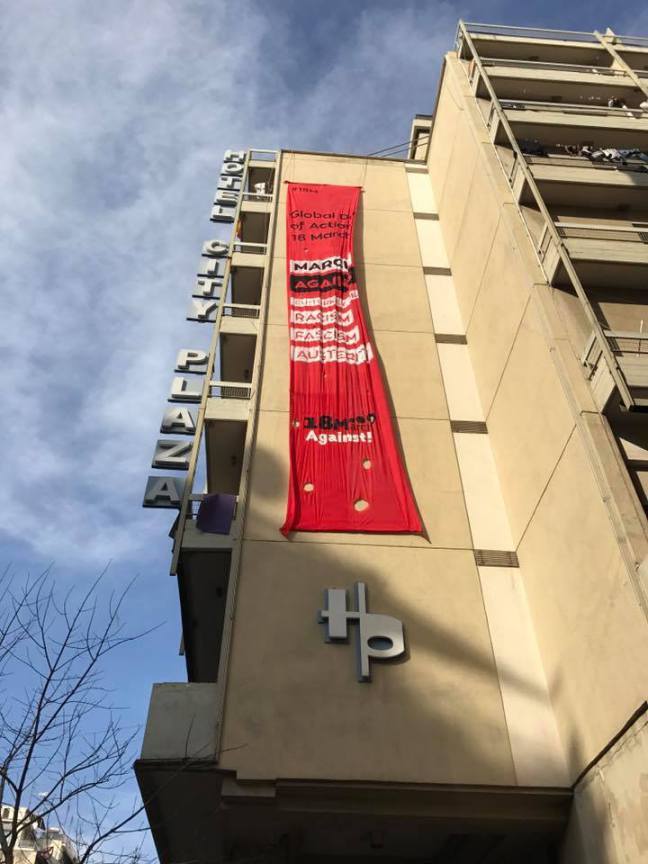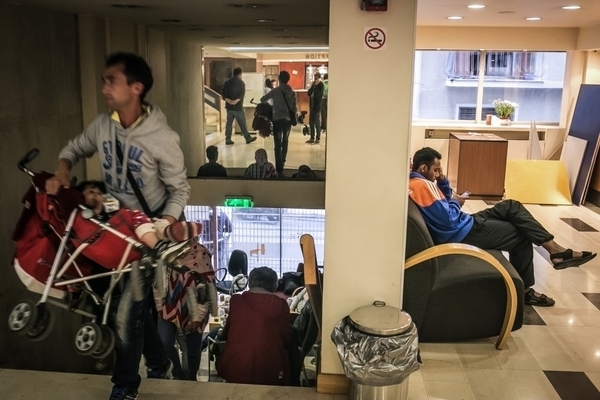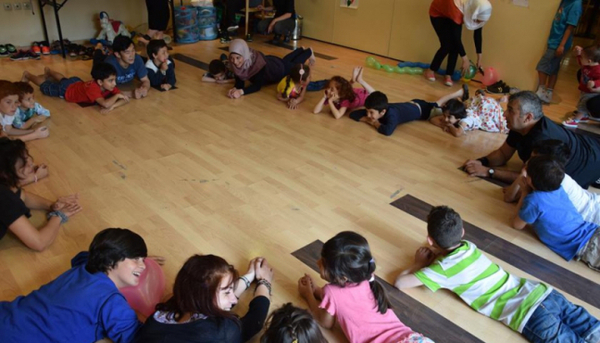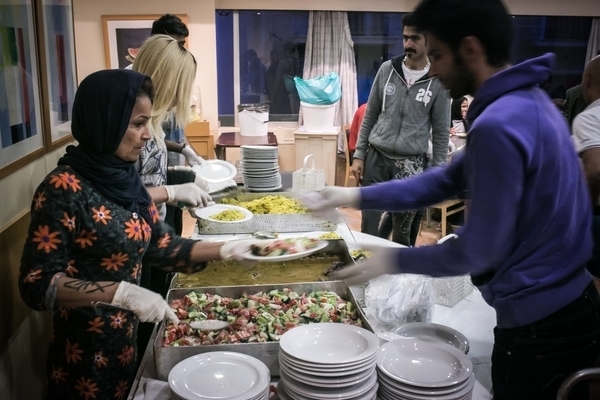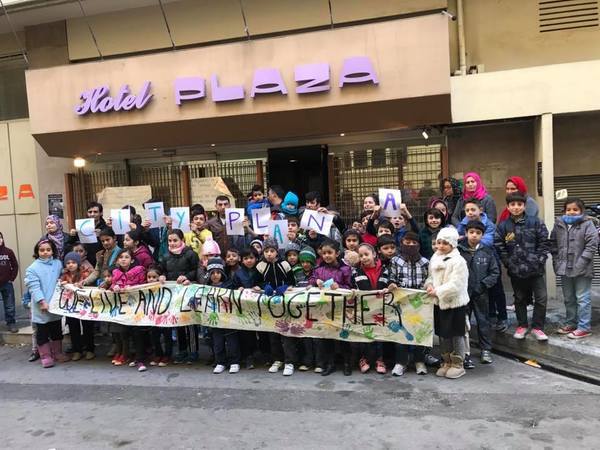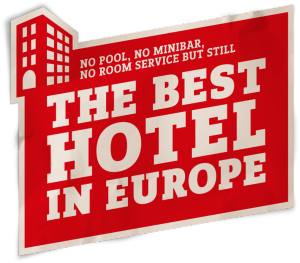 Since 2015 and the emergence of the refugee movement to Europe, Greece has become a major stopover on the journey of people seeking a better and safer life. Thousands of immigrants from Syria, Kurdistan, Iraq, Afghanistan and other war zones have abandoned their homeland in search of a new home, where their life and freedom are not compromised.
Since 2015 and the emergence of the refugee movement to Europe, Greece has become a major stopover on the journey of people seeking a better and safer life. Thousands of immigrants from Syria, Kurdistan, Iraq, Afghanistan and other war zones have abandoned their homeland in search of a new home, where their life and freedom are not compromised.
Unfortunately, the EU and Greek governments have been unable (and largely unwilling) to respond to the issue. Instead of providing safety and solidarity to war victims, they have signed a (rather shameful) agreement with Turkey, with the purpose of “managing refugee flows” and further securitizing the “forbidden” European borders. As a result, thousands of refugees are currently trapped in Greece, cramped inside detention centers and camps, away from the public eye.
In this context, on 22 April 2016, activists and refugees squatted the City Plaza Hotel in Athens, which had been abandoned for seven years, in order to create “here and now” a model of dignified housing inside the city. Since then, City Plaza became a home for 400 refugees, including 100 families and 168 children. More than 100 solidarians (locals, activists and volunteers) have mobilized to break with the reality of detention, to build new social relations and multicultural forms of coexistence between locals and immigrants, and to animate a living example of self-organization.

Demonstration against racism, fascism, austerity and the EU-Turkey immigration policy, 18 March 2017, Athens
“We live together, we work together, we struggle together” is the main motto of the initiative.
Self-organization is at the heart of City Plaza. The day-to-day running of City Plaza is based on solidarity and participation. Activists and refugees work collectively to clean, repair and organize the space. Several self-managed working groups have emerged:
Education and child care: provides classes for children in their own mother tongues, in Greek and in English; also organizes creative activities.
Language classes: several groups of teachers provide classes in Greek language for children, and English and German for adults and children.
Health care: composed of doctors and nurses, this team runs a health care center at City Plaza on a daily basis, and coordinates contacts with public hospitals if needed.
Kitchen: teams of refugees and solidarians prepare approximately 1000 cooked meals each day, in addition to breakfast.
Not everything works perfectly, however. What are the challenges in organizing a common living space? Olga, a female Greek activist at City Plaza tries to answer this question:
“The basic thing is that we live in a world which is becoming more and more individualistic. It is a question of political emancipation. For many people working and living in this collective way, it is out of their comfort zone to begin with (…). There are many women in particular who arrive at City Plaza and have never been part of a meeting where all decisions are taken. They have never been involved in a space where they are able to participate equally in day-to-day life. After a few months, these women have gradually taken more and more initiative and responsibility. A self-organized space fights oppression and enables empowerment for all those involved”.
Therefore, the City Plaza initiative tries not to promote dependence, but to encourage people to become independent and to look after themselves. It provides the tools and platforms for people to think and act for themselves and to understand their own personal and political situation and status. The starting point is to make use of the knowledge, specialized skills, interests and professional experience of everyone – refugees and solidarians alike. As another female activist, Anastasia, explains:
“We are not ‘giving’ solidarity. We are saying ‘we are here to support you, but we cannot do everything for you’. This is the actual challenge: to achieve a real sense of collaboration, independence and freedom for everyone here”.
Shero, one of the three Chefs cooking in the City Plaza kitchen, describes his experience in these terms:
“No matter where you are from or which language you speak, in the City Plaza kitchen you are equal. We do everything as one team”.
For activists the initiative is not only a response to the social hardship of anti-immigrants politics. Rather, they are in a process of forging an alternative world view on humanism, solidarity, and social relations more broadly. As stated in City Plaza’s first political-administrative assembly in April 2016:
“We are convinced that the balance of power can be shifted in concrete practices rather than through general humanitarian appeals. In these practices the renewed version of the mantra of T.I.N.A. (There is no Alternative) of repressive migration policies can be disputed and space can be gained against the far-right. City Plaza made itself a place of solidarity and resistance in a neighborhood that is claimed since years by the extreme right and the neo-Nazi Golden Dawn party”.
City Plaza’s residents work as a political community under construction, as a potentially new means of bottom up democratic politics. This is not only practiced through horizontal participation and open decision-making processes, but also by way of a practical transformation of everyday life. Activists and immigrants mix different temporalities: from providing for immediate social needs and confronting the state, to engaging in long-term processes of learning and experimentation. They question power relations and practice democratization as an open-ended process. As activist Elias points out:
“To my mind, this transformative potential in everyday practice is the common background of our movement and all the current grassroots social initiatives”.
To conclude, I use once more the words of the activists:
“City Plaza alone cannot bring back the lost summers: the Mediterranean sea continues to be a watery grave for thousands of refugees, the internal and external borders of Europe operate as Apartheid zones of human rights, while Europe is drowning in the madness of austerity and is being transformed into an expensive social hotspot”.
Therefore, the struggle against every form of oppression is both a global and a constant struggle. Let us not forget that.
Giorgos Velegrakis reports from Athens’ struggles against EU immigration policy, and for the creation of a new political community.
City Plaza: http://solidarity2refugees.gr/english/
Squats in Greece: https://radar.squat.net/en/groups/country/GR/squated/squat
Groups in Greece: https://radar.squat.net/en/groups/country/GR
Events in Greece: https://radar.squat.net/en/events/country/GR
